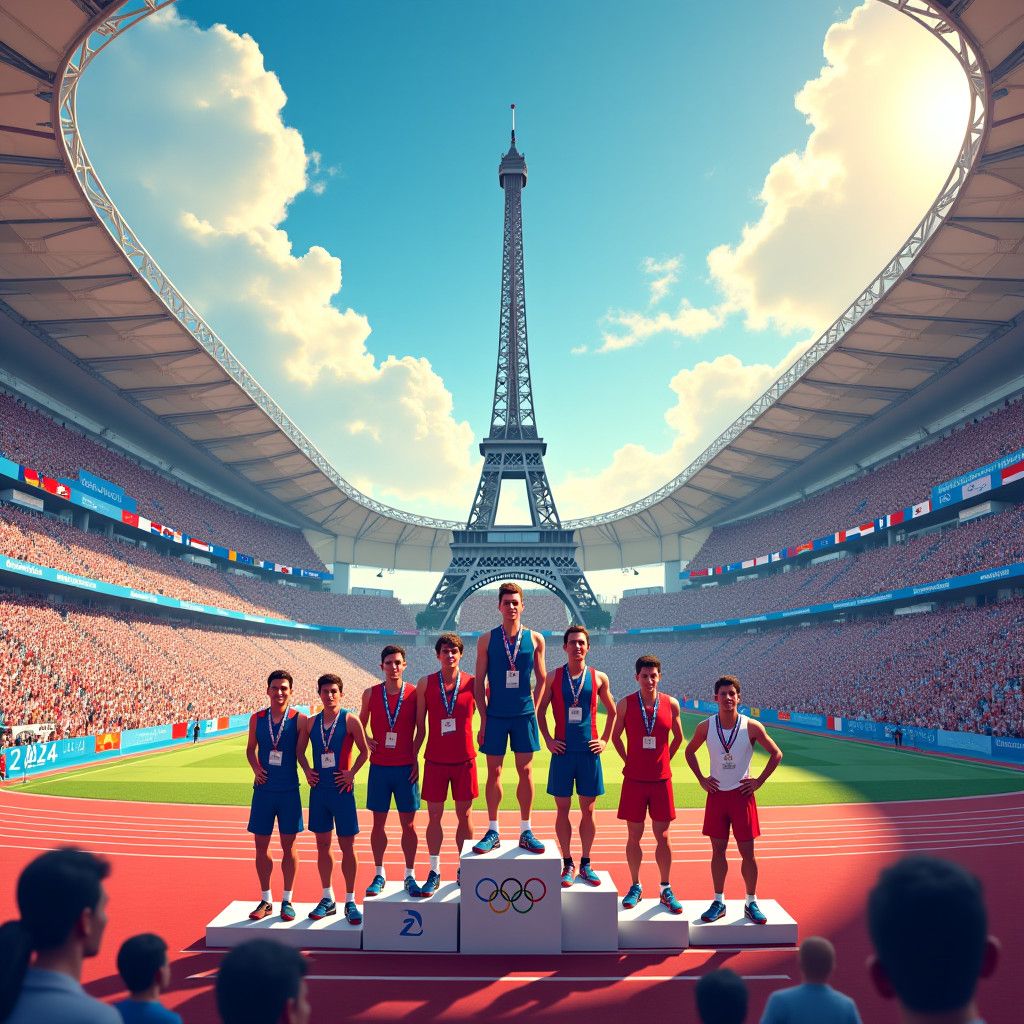The 2024 Paris Olympics proved to be a significant turning point in the integration of technology and sports, as artificial intelligence (AI) played a pivotal role in shaping the event. These advancements are not just exciting; they represent a fundamental shift in how events can be organized, athletes can compete, and even how audiences can engage with the games. This article explores the various aspects of AI’s impact on the Olympics, from enhancing athlete safety to optimizing energy consumption, highlighting the strides made in sports technology.
One of the most notable applications of AI during the Paris Olympics was in the area of athlete protection. The physical demands placed on athletes can lead to severe injuries if not managed correctly. AI algorithms were employed to monitor athletes’ health and performance in real-time, analyzing data from wearable devices. These devices provided continuous feedback on metrics such as heart rate, oxygen saturation, and muscle strain. For instance, researchers from the University of Paris utilized machine learning models to predict potential injuries before they occurred. By identifying abnormal trends in athletes’ physiological data, individuals could receive alerts and preventive care measures to mitigate risks.
In addition to enhancing safety, AI technology also revolutionized the way athletes trained and prepared for their competitions. The tapestry of traditional training was augmented with intelligent data analysis, providing coaches and trainers with insights previously inaccessible. For example, AI systems were capable of dissecting vast amounts of video footage, allowing coaches to dissect opponents’ tactics and movements. This not only helped in formulating better training regimens but also in developing counter-strategies that could exploit weaknesses in rival competitors.
Moreover, AI played an essential role in revolutionizing energy management at the venues. With the 2024 Olympics pushing for sustainability, organizers harnessed AI’s capabilities to optimize energy consumption across infrastructures, including lighting and climate control. Smart systems used predictive analytics to manage energy usage more efficiently, thereby reducing waste. For instance, an AI-driven energy management system could automatically adjust lighting in response to occupancy patterns, which not only conserves energy but also reduces costs significantly.
These advancements in energy management were complemented by a commitment from the Paris organizing committee to ensure a greener event overall. Reports indicated that the Paris Olympics aimed for a 50% reduction in greenhouse gas emissions compared to previous Olympics. The integration of AI aligned with this goal since it enabled the monitoring and analysis of various environmental parameters, enhancing decision-making regarding resource allocation and emissions management.
Fan engagement, another critical aspect of the Olympic experience, was also transformed by AI technology. Organizers implemented chatbots and virtual assistants that provided real-time assistance to spectators. For instance, attendees could inquire about event timings, venue locations, and even purchase tickets through conversational AI interfaces. This not only improved the overall experience for fans but also streamlined operations at the venues. Attendees could navigate through complex venue layouts or best access transport routes with a few simple interactions.
Another exciting aspect of AI’s role in the 2024 Olympics was its potential impact on broadcasting. AI-driven technologies contributed to enhanced viewing experiences for fans around the globe. With the help of machine learning algorithms, broadcasters could analyze vast amounts of data to deliver personalized content tailored to individual preferences. Imagine a scenario where fans could receive alerts about competitors they follow or predictive updates about upcoming medal opportunities. Such tools create a more engaging and immersive experience for viewers, drawing them closer to the action.
The Paris Olympics serve as a remarkable example of how technology can redefine traditional paradigms of sporting events, shining a light on the synergy between innovation and athletics. By creatively applying AI technologies, the event showcased not only the athleticism of the competitors but also the brilliance of modern advancements in technology.
As we look ahead, the lessons learned from the Paris Olympics could inform the future of large-scale sporting events. The integration of AI in sports goes beyond merely event management; it lays the groundwork for a new era in athlete training, fan engagement, and sustainability.
In conclusion, AI’s contributions to the 2024 Paris Olympics have set a new standard in sports. From protecting athletes and reducing energy consumption to enhancing the spectator experience, the impact of AI will likely resonate through future Olympic Games and beyond. The balance of tradition and innovation could lead to more efficient, safer, and engaging sporting events.












